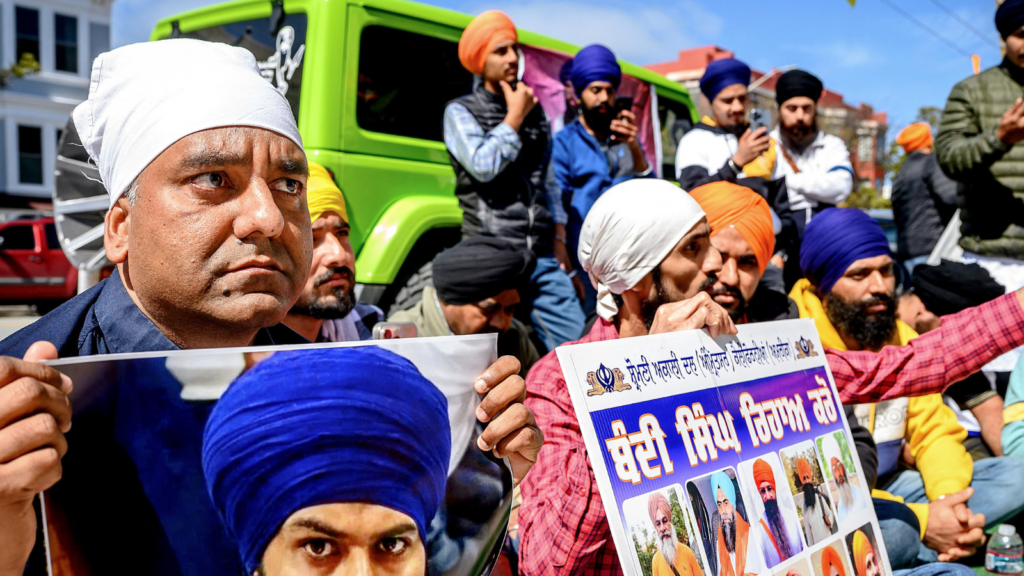RAW Connected to Pakistani Assassinations: Report Reveals India’s Secret Campaign
An investigative investigation by The Washington Post claims that India’s Research and Analysis Wing (RAW) espionage agency planned a clandestine murder campaign, which sparked a wave of targeted assassinations in Pakistan. These activities, according to the article, have been a crucial part of India’s clandestine policy under Prime Minister Narendra Modi’s direction, signaling a risky intensification of the shadow war between the two nuclear-armed neighbors.
Targeted Killing Trends
The murder of Amir Sarfaraz, popularly known as “Tamba,” in Lahore in April 2023 was among the most prominent events. Assailants on a motorcycle shot and killed Sarfaraz, a former prisoner connected to the 2011 killing of an Indian intelligence official. According to Pakistani officials, the bombing had every indication of Indian participation.
According to Pakistani officials, this episode is a part of a larger trend of targeted assassinations that started to increase in 2021. Pakistani intelligence agencies have compiled a number of incidents in which they suspect RAW agents carried out similar missions using Afghan nationals or local operators, thereby fostering a climate of instability and mistrust throughout the nation.
Modi’s Strategy: Unregulated Funds and Dubai Connections
According to investigations, RAW allegedly created a sophisticated network. Both Western and Pakistani intelligence sources claim that middlemen with headquarters in Dubai are essential to the planning of these killings. According to reports, these middlemen employ Afghan nationals or local criminals and transfer money via unofficial financial methods like hawala. These operators receive comprehensive instructions from intelligence obtained through India’s vast regional network.
Furthermore, according to the Washington Post investigation, Pakistan is where India first established and perfected its murder-for-hire schemes, which have recently been accused in Western nations. Ajit Doval, the country’s current national security adviser, had earlier developed a theory that supported these clandestine operations. “We can defend ourselves by going to the place from which the offense is coming,” Doval said in a lecture in 2014. Pakistan is extremely vulnerable.
Increasing the Scale of Shadow Operations
The clandestine campaign by India is not wholly new. According to reports, Indian Army General V.K. Singh sought to kill Kashmiri insurgent leader Syed Salahuddin in 2012 and oversaw operations involving small-scale explosions in Pakistan. The 2013 assassination of Nasiruddin Haqqani outside an Islamabad bakery has also been linked to India, according to a former Pakistani officer.
But two years after Modi’s reelection in 2021, the assassination campaign really picked up steam. Targeted killings, purportedly carried out by RAW, significantly increased during this time as Modi’s government took an assertive posture toward Pakistan.
Pakistani officials contend that these actions damage any chance of trust between the two countries and jeopardize regional stability. Islamabad has brought up these issues with outside parties, including the US, and demanded that the claims be looked into objectively.
Regional Consequences and International Acusations
South Asia is not the only region where RAW is being accused. According to a federal indictment filed in the United States, Gurpatwant Singh Pannun, a Sikh separatist residing in New York, was the target of an assassination attempt carried out by Vikash Yadav, a RAW officer stationed in New Delhi. According to reports, Yadav told businessman Nikhil Gupta to hire a hitman, but Gupta accidentally contacted a DEA agent, thwarting the plan.
In a similar vein, Canada has charged that India uses surveillance, threats, and even attempted murder to target the Sikh diaspora. Indian diplomats have been accused by Canadian authorities of spying on Sikh groups, and they claim that private correspondence seized during investigations shows direct participation in these actions.
Relations between India and Canada were further strained in June 2023 when Sikh separatist leader Hardeep Singh Nijjar was killed in British Columbia. A diplomatic stalemate resulted from the incident, with Canada accusing India of planning the killing and India refuting the claims, citing national security concerns.
Professor of political science Christopher Clary of the State University of New York emphasized the parallels between RAW’s tactics and those of Israel’s Mossad, which has effectively carried out killings in developing nations. However, if revealed, India’s efforts run the possibility of serious diplomatic repercussions, much like Mossad’s contentious 2010 operation in Dubai.
Diplomatic Stuckness
The relationship between India and Pakistan is still extremely tense, despite intermittent attempts at peace negotiations. As part of a larger plan to put pressure on Islamabad over matters like Kashmir and counter-militancy initiatives, Pakistan has drawn attention to India’s clandestine operations. The already unstable geopolitical landscape in South Asia is further complicated by these findings.
India’s use of clandestine tactics appeals to Modi’s supporters at home and supports his reputation as a capable leader. Nonetheless, these acts are coming under increasing international scrutiny, especially because they raise questions about the potential for unintended escalation in the region and the deterioration of global norms.
The clandestine murder attempt highlights the intense nature of their long-running rivalry as India deals with growing international censure over its human rights record and Pakistan struggles with economic unrest. Such actions run the risk of further destabilizing South Asia, where decades of hostility have already fuelled proxy wars, armed conflicts, and border skirmishes, according to experts.
In conclusion
The accusations made against RAW represent a worrying development in India’s clandestine tactics under Modi’s direction. The consequences of such activities go well beyond South Asia, notwithstanding Indian officials’ insistence that these measures are meant to combat terrorism and safeguard national security. The international community must confront these clandestine operations while averting additional instability as the world’s attention shifts to the area.

